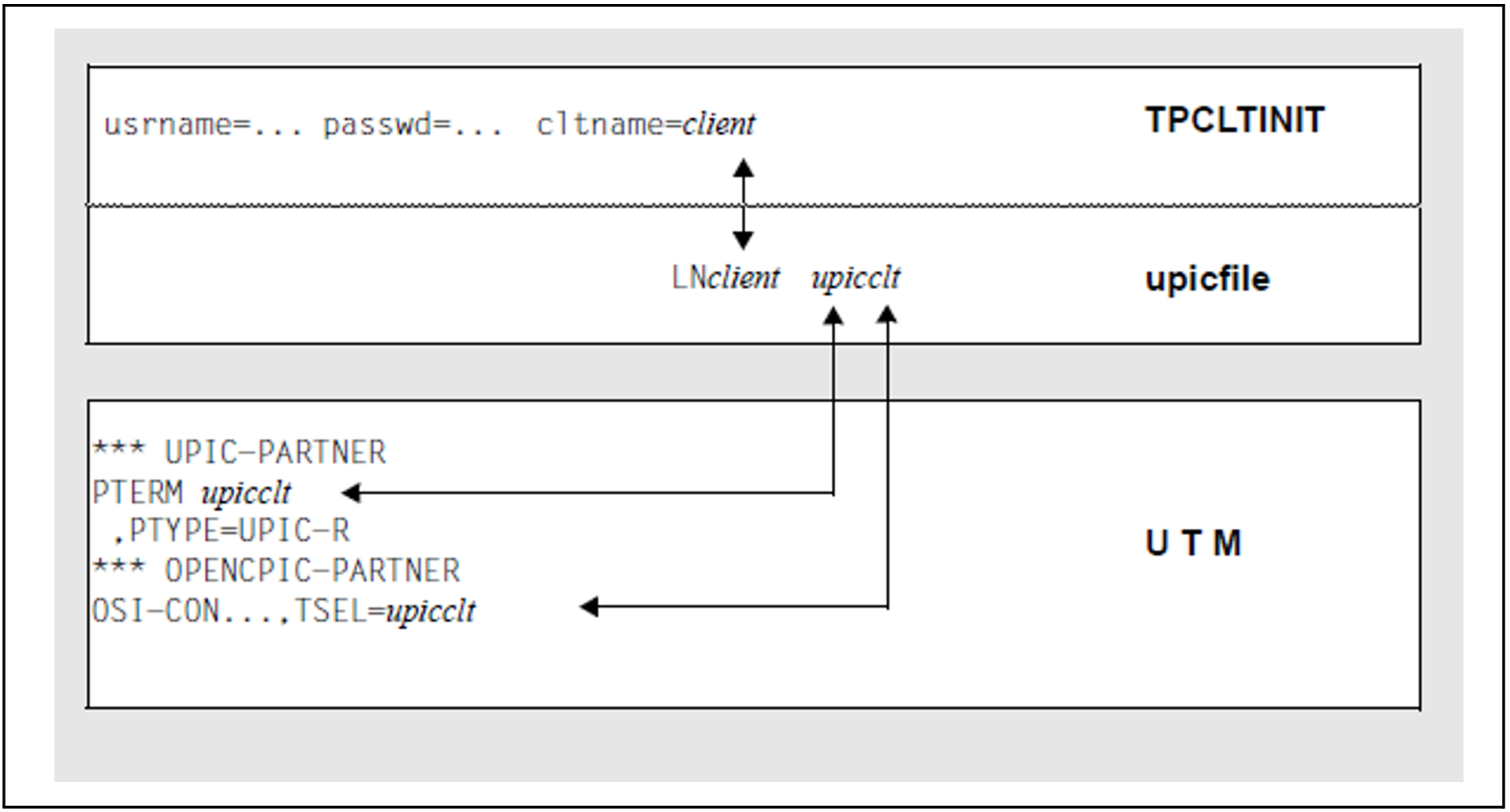An XATMI client is initialized using the tpinit() function. Parameters for the user ID, password, and local application name are passed in the TPCLTINIT structure. These parameters must be aligned with the UTM configuration as described below.
User ID and password
This security function can only be used with the UPIC carrier system.
Figure 22: Corresponding configuration parameters
A corresponding UTM user ID must be configured in the UTM application with a USER statement for the user ID user passed with the tpinit() call. On the basis of the access data user and password, if given, UTM checks the access authorization.
Local name
The diagram below shows the initialization procedure in a case where a local application name is defined in the upicfile.
Figure 23: Initialization of a local application
If a local application name is configured in the upicfile, this name can be specified for tpinit() (client in this example).
The associated application name must then be the same as the name specified in the PTERM statement
If no local application name is configured in the upicfile, the name defined on the UTM side in the PTERM statement must be specified (upicclt in this example).
Example
The sample extract below covers all the relevant steps in local configuration, UPIC configuration, initialization, and KDCDEF configuration.
client
Local configuration:SVCU ... ,RSN=SERVICE1 ,TAC=TAC1 ,DEST=SATURNUS ...upicfile:SDSATURNUS utmserv1
InitializationTPCLTINIT tpinfo; strcpy (tpinfo.cltname, "CLIENT1"); strcpy (tpinfo.usrname, "UPICUSER"); strcpy (tpinfo.passwd, "SECRET"); tpinit (tpinfo);
Server
Local configurationSVCP SERVICE1 ... (REQP also possible) ,TAC=TAC1 KDCDEF statements MAX APPLINAME=UTMSERV1or
BCAMAPPL UTMSERV1 (on BS2000 systems, also with parameter TPROT=ISO) LTERM UPICTERM PTERM UPRCLIENT, PTYPE=UPIC-R, PRONAM=DxxxSyyy (with UPIC remote conn.) PTERM CLIENT1, PTYPE=UPIC-L (with UPIC local conn.) TAC TAC1, PROGRAM=..., API=(XOPEN,XATMI) USER UPICUSER,PASS=SECRET


